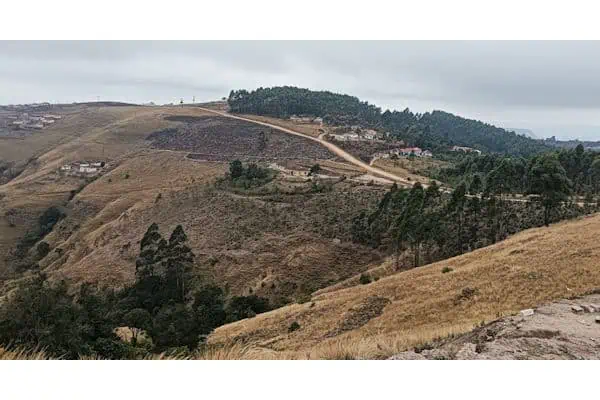Challenges and opportunities for small-scale wattle farmers
Forestry South Africa (FSA) reports that there are over 25,000 small-scale timber growers, with the majority being subsistence farmers supported by forestry cooperatives and social development initiatives of large corporations.
The commercial tree species include eucalyptus, wattle, and pine and are selected based on market demand and timber end-use.
Small-scale timber farming occurs mainly in rural KwaZulu-Natal, Limpopo, and the Eastern Cape. These entities often emerge as new participants in the forestry industry through land redistribution programs.
Individual forestry plantations vary from half to four hectares. At the same time, community-based entities like Community Property Associations and Community Land Trusts have larger land extents, ranging from 50 to 20,00 hectares.
While the government and NGOs often provide extension services that offer practical advice and support to farmers on the ground, larger forestry companies have small-scale tree growers and out-grower schemes like Sappi Khulisa, Mondi Zimele, and the NTE – NCT joint venture, Project Wattle Regen.
For individual growers, tree farming acts as a financial safety net. Four hectares of land are insufficient to sustain basic needs throughout a single rotation cycle, such as eight to nine years for eucalyptus pulpwood.
Consequently, these growers depend on additional income sources, including agroforestry, government grants and remittances from family members in urban areas.
LAND OWNERSHIP AND GENDER
Small-scale communal farmers are predominantly women who own 3.8% (approximately 45,600 hectares) of the country’s commercial timber plantations.
Women living in rural areas governed by traditional authorities in South Africa face various challenges. These challenges include limited access to land ownership, economic opportunities, and decision-making processes.
The traditional authority system tends to operate parallel to the legal system by enforcing customary laws that historically marginalise women. This results in women having fewer rights and protections than men, especially property and land rights.
The Traditional Leadership and Governance Framework Act (TLGFA) 2003 was amended to better integrate traditional leadership with constitutional principles, including gender equality.
The most significant development came with the Constitutional Court ruling in 2018 on the case of “Rahube v Rahube,” which reinforced women’s rights to land ownership under customary law. This ruling emphasised that customary law must be interpreted in line with the Constitution, which guarantees equality and prohibits discrimination based on gender.
Despite these legal advancements, practical enforcement remains a challenge. Many rural women in South Africa are barred from gaining ownership of land through customary laws, traditional perceptions, and gender inequality in rural areas. They still struggle to claim their rights due to deeply ingrained cultural norms and resistance from traditional leaders.
Ongoing government and civil society efforts focus on education, advocacy, and legal support to ensure women can fully exercise their land rights. Legal reforms have laid the groundwork, but achieving gender equality in land ownership requires continuous efforts to overcome cultural and institutional barriers.
CHALLENGES FOR SMALL GROWERS
Small-scale growers face challenges similar to those of large timber corporations but with added complexity. Like their larger counterparts, they contend with fires, pests, diseases, drought, and climate change. Both need to cultivate and sustain trees efficiently and cost-effectively to maximise productivity.
Generally, rural people’s low literacy and education levels are barriers to adopting and understanding improving tree farming technologies, agroforestry, budget forecasting and planning.
They also encounter high transaction costs due to poor access to information, inadequate road networks, and long distances to markets. Securing reliable markets, including pulp mills, wood chip exports, sawmills, and treated poles, is often challenging for small growers who may harvest timber without a confirmed market.
OPPORTUNITIES
Opportunities for small-scale growers include technology transfer initiatives. Organisations like the Institute for Commercial Forestry Research (ICFR) are engaged in efforts to enhance small-scale timber farming, such as the Eucalyptus Toolkit, which provides guidelines for planting gum trees and is available in several local African languages.
The ICFR also releases technical notes and information detailing the latest advancements in tree farming. Large forestry companies such as Sappi, Mondi, NCT, and TWK offer technical notes and access to risk management models like accurate weather forecasting to their private suppliers and out-grower schemes.



